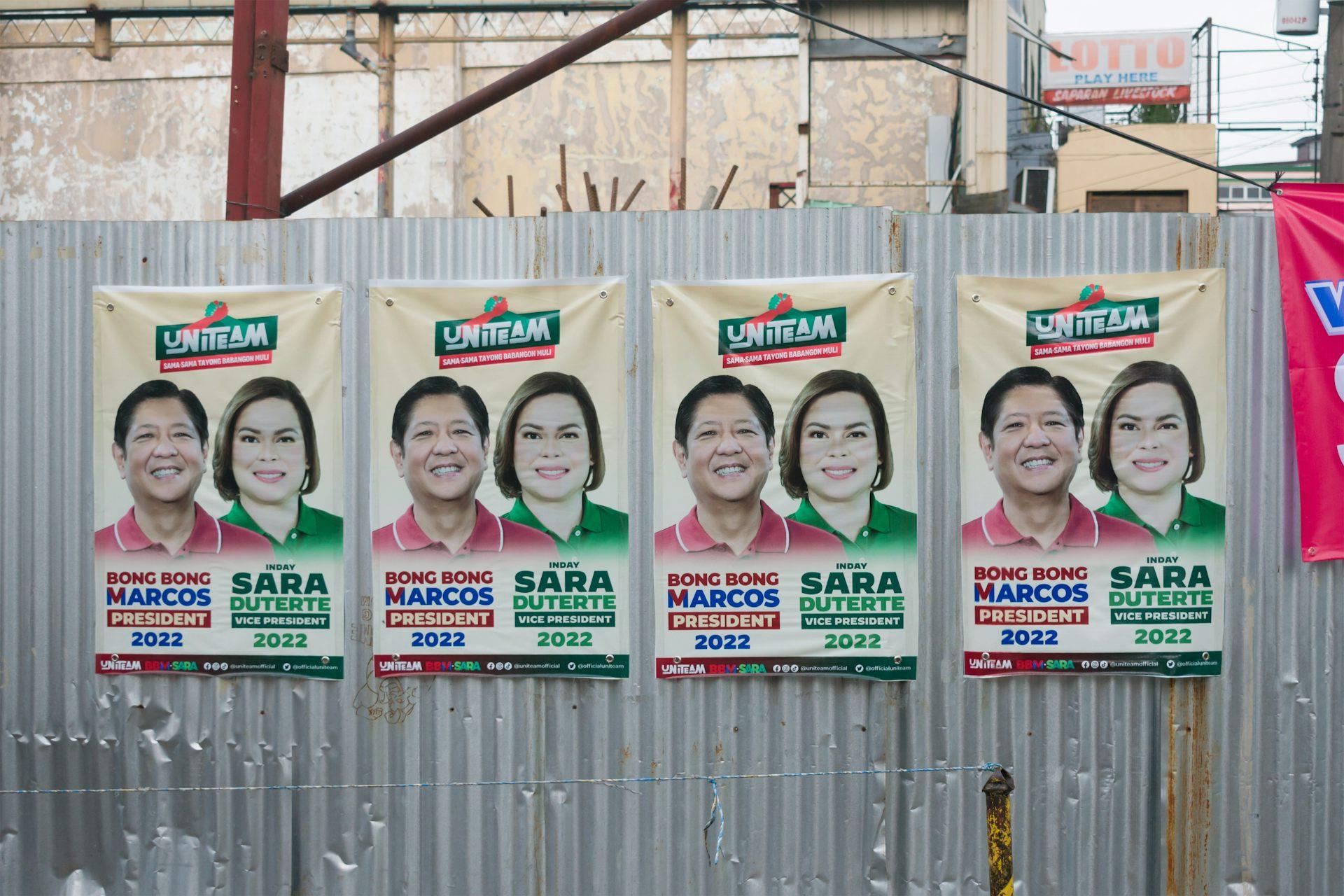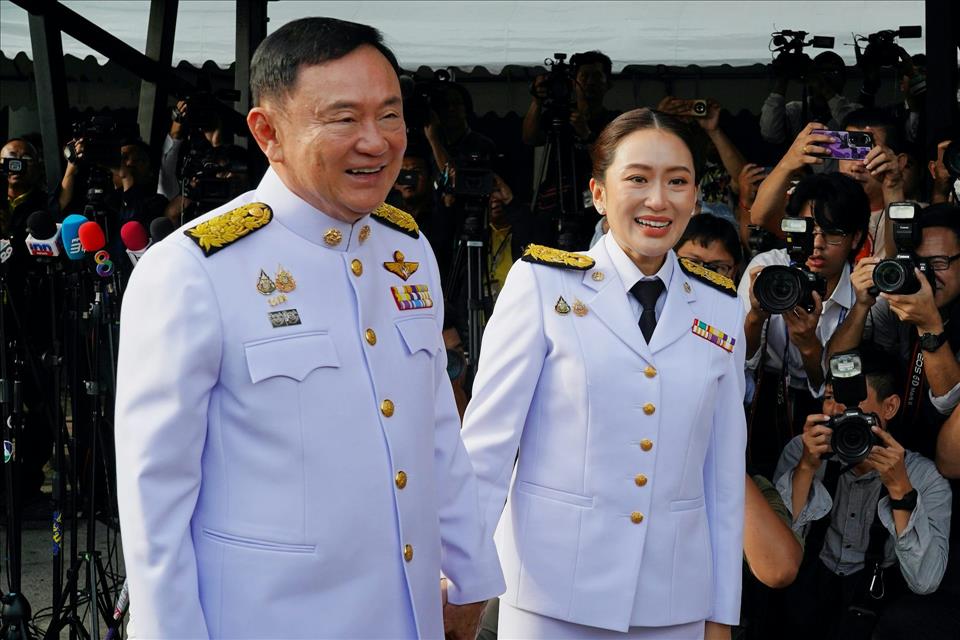
Dynasties Still Dominate South-East Asian Politics In Democracies And More Authoritarian Systems
With two prominent political families locked in a bitter feud in the Philippines, the Shinawatra clan currently being sidelined in Thailand and the Hun family navigating an uncertain succession in Cambodia, now is the right moment to take stock of how dynastic politics operates throughout south-east Asia .
The Philippines offers perhaps the starkest example of dynastic democracy in south-east Asia. Philippine politics remains structured less by parties or programmes than by family blocs , with the Marcos and Duterte clans foremost among them. Coalitions rest on name recognition and patronage networks that have proved more durable than any formal party institution.
The Philippine system remains fiercely competitive. But dynastic politics there narrows true democratic representation and weakens accountability. It also leaves coalitions prone to fracture. The alliance between the Marcos and Duterte families that swept the 2022 elections, for example, cracked almost immediately .
The current Philippine vice-president, Sara Duterte, is now in open conflict with President Ferdinand“Bongbong” Marcos Jr – the son and namesake of the former Philippine dictator who was ousted in 1986. This rupture has unsettled government.
Sara Duterte has faced impeachment efforts, which have been blocked by a supreme court shaped by the appointees of her father, Rodrigo Duterte, who was president between 2016 and 2022. At the same time, she is positioning herself as a leading contender for the 2028 presidency.

The Marcos-Duterte alliance swept to victory in the 2022 Philippine elections. CaveDweller99 / Shutterstock
Indonesia's newer democracy tells another – albeit relatively similar – story. Since democratisation in 1998, decentralisation and local elections have opened routes from local to national office. Families have used party nominations, money, media and entrenched networks to turn those routes into political power. Dynastic manoeuvring now sits at the centre of national and local Indonesian politics.
Gibran Rakabuming Raka, the son of former president Joko“Jokowi” Widodo, reached Indonesia's vice-presidency in 2024 after a controversial constitutional court ruling reduced the age requirement for candidacy. The chief justice at the time was Jokowi's brother-in-law, Anwar Usman.
Puan Maharani, meanwhile, the daughter of former Indonesian president Megawati Sukarnoputri , continues to climb within the Indonesian Democratic Party of Struggle. Figures linked to the family of Indonesia's last authoritarian leader, Suharto, have also edged back into parliament.
Public unease with hereditary politics in Indonesia has been visible on the streets. Protests in 2024 and wider demonstrations in 2025 have taken place over lawmakers' perks, cost-of-living pressures and police violence. Much of this anger reflects the trajectory of post-Suharto Indonesia.
The first democratic generation has given way to heirs and wealthy businessmen, steeped in money politics and dependent on patronage. The result has been a crowded system where multiple families compete for leverage. These rivalries make governing alliances unstable and contribute to recurring unrest.
More authoritarian dynastiesThailand and Cambodia show how dynasties function under less democratic conditions. In Thailand, parties aligned with the Shinawatra family have played a major role in the country's politics since 2001. Yet governments linked to the family have been routinely constrained or overturned by Thailand's conservative royalist-military establishment.
The brief premiership of Paetongtarn Shinawatra underscores this point. She took office in 2024 after Pheu Thai, the party founded by her father Thaksin, struck a governing pact with the establishment. This followed an election the previous year, in which the reformist Move Forward party won the most seats but was blocked from taking power by the military-appointed Senate.
However, Paetongtarn was swiftly removed once her actions touched sensitive power balances. A leaked recording of Paetongtarn's private conversation with former Cambodian prime minister Hun Sen, where she criticised a senior Thai military general, ultimately proved her downfall. The episode reaffirmed that Thailand's monarchy-military-judicial alliance ultimately calls the shots.
Cambodia illustrates a different dynamic. Prime minister for decades, Hun Sen built a durable coalition of political, economic and security elites, sustained by the brutal suppression of dissent and generous rewards for loyalists. Now the ageing patriarch is attempting to secure his family's dominance into the next generation.
He installed his son Hun Manet as prime minister in 2023. At the same time, the children and relatives of other long-serving ministers were also promoted. In some cases they even took over their fathers' portfolios directly .
In Cambodia, where power has long been concentrated in one leader, any transition of rule is likely to be fraught. In autocratic regimes, handovers can create coordination problems and fears of exclusion or retribution among government, military and religious elites. Dynastic succession can reassure these people.
However, Hun Sen and other patriarchs such as Tea Banh and Sar Kheng are still playing prominent roles even as their heirs occupy formal positions. They continue to issue orders and lead diplomacy , undermining the credibility of their children.
The reemergence of Hun Sen as Cambodia's decisive political voice during the recent border conflict with Thailand, for example, raises doubts about Manet's readiness for the top job.
The recent border crisis with Thailand shows that it is Hun Sen that still calls the shots in Cambodia. Seth Akmal / Shutterstock
Dynasties endure in south-east Asia because they thrive in environments where institutions are weak, parties are underdeveloped and patronage is the main currency of politics. Family names provide continuity that other political structures often cannot.
But dynasties also struggle. Heirs may lack the authority, charisma or networks of their predecessors. Older patriarchs and matriarchs often remain active, limiting renewal. And rival families compete fiercely for power, which can fragment coalitions and unsettle governments.
In the Philippines and Indonesia, two electoral democracies, politics is shaped by bargains among dominant families. This raises doubts about the depth of democratic competition. In Thailand and Cambodia, politics is more tightly controlled. Dynasties there expose the fragility of succession and the limits imposed by entrenched power centres.
Across south-east Asia, dynasties still shape how power is acquired and passed on. But they do not resolve the uncertainties of rule. The only constant seems to be that authority remains concentrated among elites and shifts only within their ranks.

Legal Disclaimer:
MENAFN provides the
information “as is” without warranty of any kind. We do not accept
any responsibility or liability for the accuracy, content, images,
videos, licenses, completeness, legality, or reliability of the information
contained in this article. If you have any complaints or copyright
issues related to this article, kindly contact the provider above.

















Comments
No comment